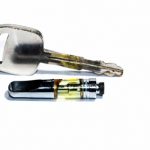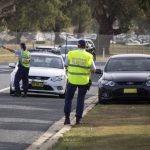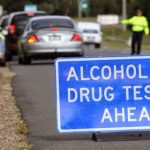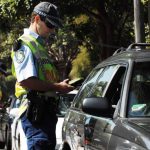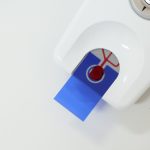Government Tightens Screws on Unjust Drug Driving Regime

As of next Monday, 20 May, first time alleged low-range drink drivers and drivers in respect of whom the presence of drugs is confirmed by a laboratory analysis will be fined $561 and have their licences suspended for three months.
For drivers registering a blood alcohol concentration (BAC) between 0.05 and 0.079, the fine will be issued on the spot and their licence will instantly suspended, as the breath analysis device used shortly after a roadside breath test is considered to be a reliable measure of a person’s BAC.
But as roadside drug driving tests aren’t reliable, the fine and licence suspension won’t kick in unless the results of the backup saliva test carried out at a laboratory come back positive.
There’s another glaring difference between the testing regimes that existed prior to the passing of the streamlined penalty scheme on 25 September last year, and that is while officers test drivers to see if they’re drunk, they in no way ascertain whether someone behind the wheel is affected by drugs.
Indeed, roadside drug testing is all about checking oral fluid for any trace of four illicit substances: MDMA, cocaine, amphetamines and THC, the psychoactive ingredient in cannabis. This means police are busting people for having tiny traces of these substances in their saliva days after use.
Punishment, not safety
“This scheme has never been about road safety,” NSW Greens MLC David Shoebridge told Sydney Criminal Lawyers. “This scheme has always been a backhanded extension of the war on drugs.”
“By testing for the mere presence of especially cannabis, the government isn’t removing unsafe drivers,” he continued. “They’re removing anybody who has consumed cannabis literally in the last seven to fourteen days.”
The Greens justice spokesperson said the changes to the police roadside testing regime will have two major impacts. Firstly, “it’s deeply unfair”. While the heftier fine will only provide a “slap on the wrist” for the wealthy, those “surviving on a much lower income” will find the debt “crippling”.
According to Shoebridge, the second detriment is in the area of licence suspensions. Currently, 36 percent of drivers who go before the courts keep their licences because magistrates are actually listening to the circumstances of cases and realising that innocent mistakes are occurring.
“These people will now automatically lose their licence, which often means losing livelihoods, losing access to education and losing their mobility,” Mr Shoebridge stressed. He added that instead of government improving road safety, they’re playing some “pretty ugly politics”.
Targeting cannabis culture
The Baird government announced in December 2015 that it was tripling the number of roadside drug tests state police were carrying out to the sum of 97,000 by 2017. Then in January last year, Berejiklian said she’d double the amount of tests from 100,000 to 200,000 annually by 2020.
And over the last half decade, one of the major flashpoints of NSW police testing has been the Northern Rivers region. On Wednesday, when Nimbin HEMP Embassy president Michael Balderstone spoke over the phone, he said the police were testing along the road between there and Lismore.
“More people are going to lose their licences. Magistrates realised that people weren’t impaired, because they were testing positive days after smoking,” Mr Balderstone explained. “In the country, you can’t afford to lose your licence.”
A game-changing ruling took place in February 2016, when Lismore magistrate David Heilpern found Joseph Carrall not guilty of drug driving, as he’d last smoked cannabis nine days prior to testing. And he’d actually followed the advice of a police officer in waiting that long before driving after smoking.
“I don’t believe the authorities are so ignorant anymore,” Balderstone remarked. In the past, there were questions as to how long cannabis would remain in a person’s system. “They must realise by now that cannabis is totally different to other drugs. Your body hangs onto it.”
“It just feels malicious to me,” Balderstone continued. And he said he was reminded of a senior police officer who once said to renowned medicinal cannabis practitioner Dr Andrew Katelaris, “You might get your medical cannabis, mate. But, you won’t be driving,”
“So, there has been a long-term strategy in place,” Balderstone added.
Legalise it, don’t criticise it
Mr Balderstone and Dr Katelaris are currently both running for the Senate in this Saturday’s federal election on the HEMP Party ticket. If elected, the pair want to see the laws around cannabis changed in this country, so that people can purchase legal product or grow it at home.
While the NSW Greens are currently finalising its drafting instructions for a bill to legalise cannabis in NSW that it plans to introduce into state parliament sometime this year. The party are now addressing issues around licensing and the interaction of state and federal laws.
It’s simple: test for impairment
The current drug driving regime in NSW is unjust. Drivers are slyly being penalised for illicit drug use that has nothing to do with their driving performance. And unlike drink driving, police aren’t trying to catch people who are driving under the influence of drugs, because they have no way of knowing.
“It’s very simple to fix this system,” Mr Shoebridge made clear. All that needs to be done is that the authorities invest in a system that tests for impairment levels of all drugs, both licit and illicit. Variations of these models are already successfully operating in the UK and throughout Europe.
Since February 2012, Norwegian police have been testing drivers for scientifically verified impairment levels of 20 legal and illegal non-alcohol drugs, including prescription benzodiazepines, as well as the four illicit substances NSW police are testing for at present.
But, in the meantime, as cannabis medicines become more readily available, Shoebridge is advocating for a new reform, which would provide a defence for people convicted of cannabis driving if they can prove its presence was caused by consumption for medicinal purposes.
Section 111(5) of the Road Transport Act 2013 already provides such a drug driving defence in regard to morphine that’s been taken medicinally.
“That would mean that a person can only be found guilty of drug driving if they have cannabis in their system,” Mr Shoebridge concluded, “and if the police can prove that there was actual impairment.”
Going to court for a traffic offence?
If you are going to court for a traffic offence, call or email Sydney Criminal Lawyers anytime to arrange a free first consultation with an experienced, specialist traffic lawyer who will accurately advise you of your options, the best way forward, and fight for the optimal outcome in your specific situation.



